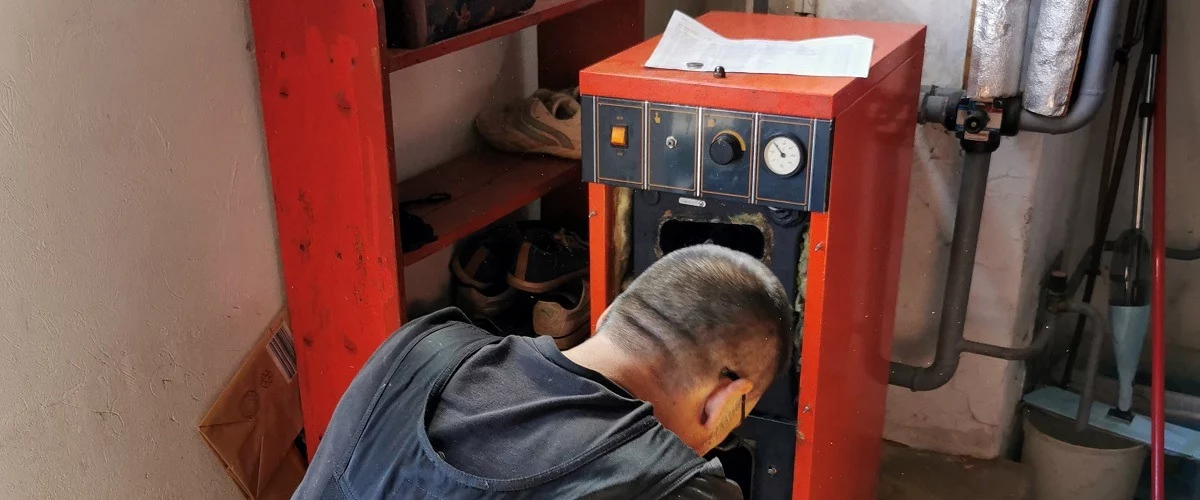


Our top priority at PBIB is to provide the coverage necessary to safeguard your Chimney Cleaning business from potential losses. As proficient insurance brokers, we have the flexibility to select from a variety of insurance programs to best accommodate your specific requirements. Our recommended coverages to protect your business include property damage, personal injury, employee injuries, damage or loss to vehicles or tools & equipment, inclusive of legal fees and indemnity:
PBIB will typically use numerous insurance companies to quote your insurance in order to give you the greatest deal and coverage for your needs. Every policy has adjustable payment options, such as yearly or monthly installments.

General Liability insurance is an essential coverage for Chimney Cleanings, protecting against third-party claims resulting from property damage or injury caused by your work. Even a minor mishap can have detrimental consequences for your business. In the event of bodily injury or property destruction caused by your business, legal repercussions can be devastating, and even fatal to your company. Prioritizing the protection of your business assets, employees, and overall enterprise, our general liability insurance shields you from vulnerable situations and catastrophic lawsuits.
It's important to note that General Liability insurance may be mandatory for your Chimney Cleaning license in your state or county of operation. At PBIB, we offer full-service certificates Monday through Friday, as well as 24/7 self-service certificates, providing you with "Insurance on your time."
General Liability for Chimney Cleanings can help you pay for:

We provide the best policies in the industry, certain to protect you and your workers in the event of an injury or illness. Workers’ compensation will pay out employee medical costs and help recoup lost income so they can get back on their feet. In the event of a lawsuit, workers comp will protect you too. So, pick us for a policy that will safeguard you and your workers.
If you have no employees, but need a Work Comp policy, not a problem, we also have policies that protect you and provide the coverage your customer requires. Workers Compensation might be required for your Chimney Cleaning license in your state or county where you work. PBIB provides full-service certificates Monday through Friday and 24/7 self-service certificates, this is what we call “Insurance on your time”.
Workers' Compensation for Chimney Cleanings can help you pay for:

Running your Chimney Cleanings business is impossible without company vehicles to transport materials and tools to the job site. At PBIB, we understand the value of your wheeled workforce and offer the insurance coverage necessary to protect against damages or theft. We work tirelessly to ensure you are back up and running in no time.
Commercial Auto insurance is a crucial coverage for Chimney Cleanings, and often a requirement for many projects. We offer full-service insurance certificates Monday through Friday, enabling you to hit the job site with confidence. Additionally, we provide 24/7 self-service certificates, providing "Insurance on your time."
Commercial Auto for Chimney Cleanings can help you pay for:

Chimney Cleanings insurance for tools and equipment is tailored to safeguard your valuable and mobile property. Inland marine insurance, also referred to as tools and equipment coverage, shields your diligent assets from common risks such as theft and damages incurred at the job site, during storage, and transportation to and from the work site. Protecting your tools and equipment against these risks is crucial for the smooth operation of your Chimney Cleanings business.
Tools & Equipment for Chimney Cleanings can help you pay for damaged or stolen:

At PBIB, we offer the best policies in the industry, guaranteeing protection for you and your workers in the event of an injury or illness. Workers' compensation coverage pays for employee medical costs and lost income, facilitating their swift recovery. Furthermore, in the event of a lawsuit, workers' compensation safeguards your business interests, protecting you from costly legal fees and settlements. Choose us for a policy that prioritizes the safety and wellbeing of your workers and safeguards your business.
Even if you have no employees, and require a Work Comp policy, we have you covered. Our policies extend coverage to protect you and meet your customers' requirements.
It's important to note that Workers' Compensation insurance may be mandatory for your Chimney Cleanings license in your state or county of operation. At PBIB, we offer full-service certificates Monday through Friday, as well as 24/7 self-service certificates, providing "Insurance on your time."
Professional Liability Insurance can help your business with:

In most states, a license bond is compulsory to obtain or maintain your contractor license. This bond assures that you comply with state law regulations and do not abscond with a client's deposit.
License bonds are obtainable for as little as $70, with the cost varying depending on personal credit, license history, and contractor classification.
At PBIB, we specialize in writing all types of bonds, including performance and payment bonds. With our streamlined process, you can simply enter your state and type of bond required or select from a list and receive an instant quote and bind online within minutes.
Sacramento is the capital city of the U.S. state of California and the seat and largest city of Sacramento County. Located at the confluence of the Sacramento and American Rivers in Northern California's Sacramento Valley, Sacramento's 2020 population of 524,943 makes it the sixth-largest city in California and the ninth-largest capital in the United States. Sacramento is the seat of the California Legislature and the Governor of California, making it the state's political center and a hub for lobbying and think tanks. It features the California State Capitol Museum. Before the arrival of the Spanish, the area was inhabited by the historic Nisenan, Maidu, and other indigenous peoples of California. Spanish cavalryman Gabriel Moraga surveyed and named the Río del Santísimo Sacramento (Sacramento River) in 1808, after the Blessed Sacrament, referring to the Eucharist in the Catholic Church. In 1839, Juan Bautista Alvarado, Mexican governor of Alta California, granted the responsibility of colonizing the Sacramento Valley to Swiss-born Mexican citizen John Augustus Sutter, who subsequently established Sutter's Fort and the settlement at the Rancho Nueva Helvetia. Following the American Conquest of California and the 1848 Treaty of Guadalupe-Hidalgo, the waterfront developed by Sutter began to be developed, and incorporated in 1850 as the City of Sacramento.
Wikipedia